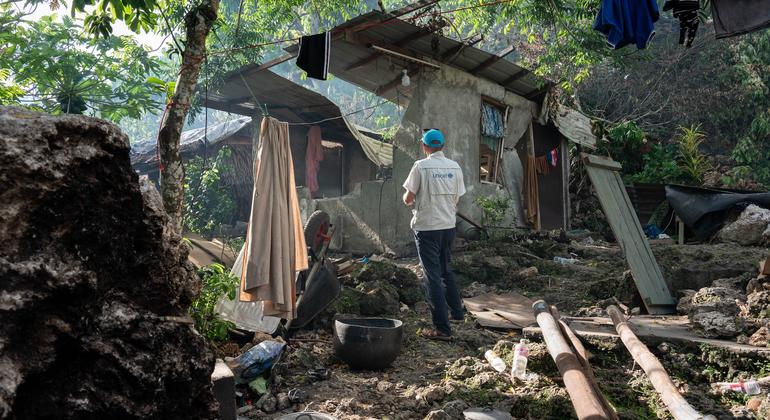
A state of emergency remains in effect across the island nation, with a seven-day dusk-to-dawn curfew in parts of Port Vila scheduled to end on December 24. The access road to the port is also said to be closed.
A second earthquake has raised concerns, but further updates on its impact are awaited, including the resumption of commercial flights at Port Vila Airport.
humanitarian needs
As of Saturday night (local time), more than 80,000 people had been affected by Tuesday’s earthquake, and nearly 1,700 had been temporarily evacuated. More than 1,200 people are evacuated in 11 shelters, and others are staying with host households.
Immediate needs include access to clean water, food and health care, as communities face an increased risk of waterborne diseases.
Health services are also reported to be under severe strain, with the Vanuatu Central Hospital (VCH) in need of essential medical supplies and coordinated emergency support to address critical gaps.
Vanuatu Earthquake Impact on Shefa Province (as of December 21, 2024).
Coordinated response
In response to the escalating crisis, a humanitarian flight coordinated by the United Nations World Food Program’s (WFP) Pacific Humanitarian Air Service (PHAS) landed in Port Vila on Saturday, carrying emergency teams from United Nations agencies, humanitarian partners and relief supplies. delivered.
Agencies including the World Health Organization (WHO), United Nations Children’s Fund (UNICEF) and United Nations Population Fund (UNFPA) are working with national authorities to support the response.
UNFPA set up a maternity tent at VCH, UNICEF set up four tents to manage the overflow of patients, and deployed a child protection team to support families and health workers.
UNICEF also delivered bladder water tanks to VCH to ensure continuous access to clean water.
WFP has dispatched emergency communications experts to restore disrupted communications networks essential to coordinating relief efforts. It is also working with the National Disaster Management Office (NDMO) and partners to assess food security needs.
Additionally, the United Nations Satellite Center (UNOSAT) conducts satellite-based damage assessments to guide resource allocation and prioritize affected areas.
Humanitarian partners, including Médecins Sans Frontières (MSF), are also providing assistance on the ground, along with national response teams.
Timely response is important
Alpha Bar, Director of WFP’s Multicountry Office in the Pacific, based in Fiji, stressed the need for a timely response to affected families.
“We grieve the loss of life and destruction of property caused by this earthquake. This coordinated effort is critical to ensuring those affected by the earthquake receive timely and necessary assistance. It’s important,” he said.
“WFP is committed to supporting the NDMO and other national institutions and will continue to intensify efforts to strengthen Vanuatu’s response in the face of this crisis.”


